Inflammatory bowel disease (IBD) is the term used to characterize a group of chronic intestinal diseases. It’s common in both cats and dogs and is thought to be related to a variety of triggers:
- Reactions to food antigens – an antigen is a foreign substance that triggers an immune response. Commonly implicated antigens are protein sources.
- Lack of balance among gastrointestinal bacteria – the millions of bacteria in the gastrointestinal tract make up the gut microbiome. Two of the main roles of the microbiome are guiding the maturation and functioning of the immune system.
Patients with IBD have unique medical needs and benefit from special foods. Diet types have one of the following characteristics:
- Highly digestible, fat-restricted, and fiber-restricted
- Contain a novel protein
- Contain a hydrolyzed protein
- Directly manipulate the gut microbiome
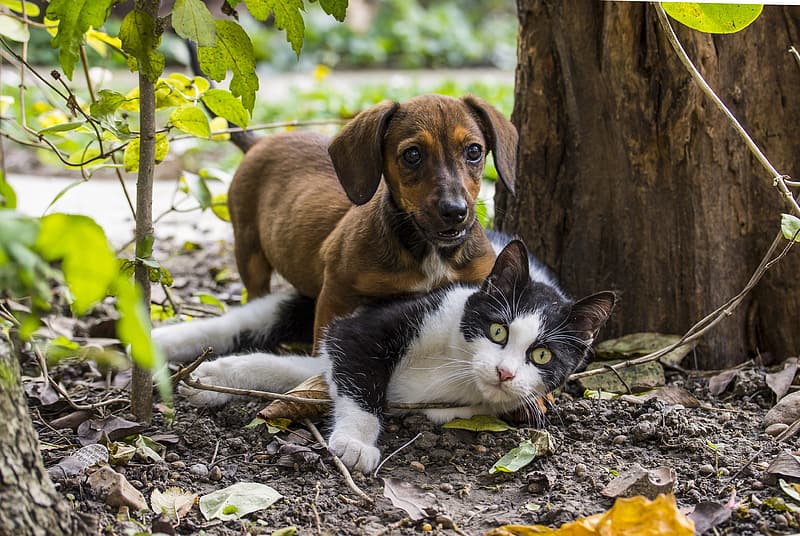
What are novel protein diets?
Novel protein diets contain a protein source to which a pet has never been exposed. Common animal protein sources in pet foods in North America are chicken, turkey, pork, beef, and lamb. As such, novel protein diets typically don’t contain one of these proteins. Common novel animal proteins are:
- Rabbit
- Venison
- Bison
- Fish (e.g.: sardines, salmon, tilapia, trout)
- Duck
- Alligator
- Kangaroo
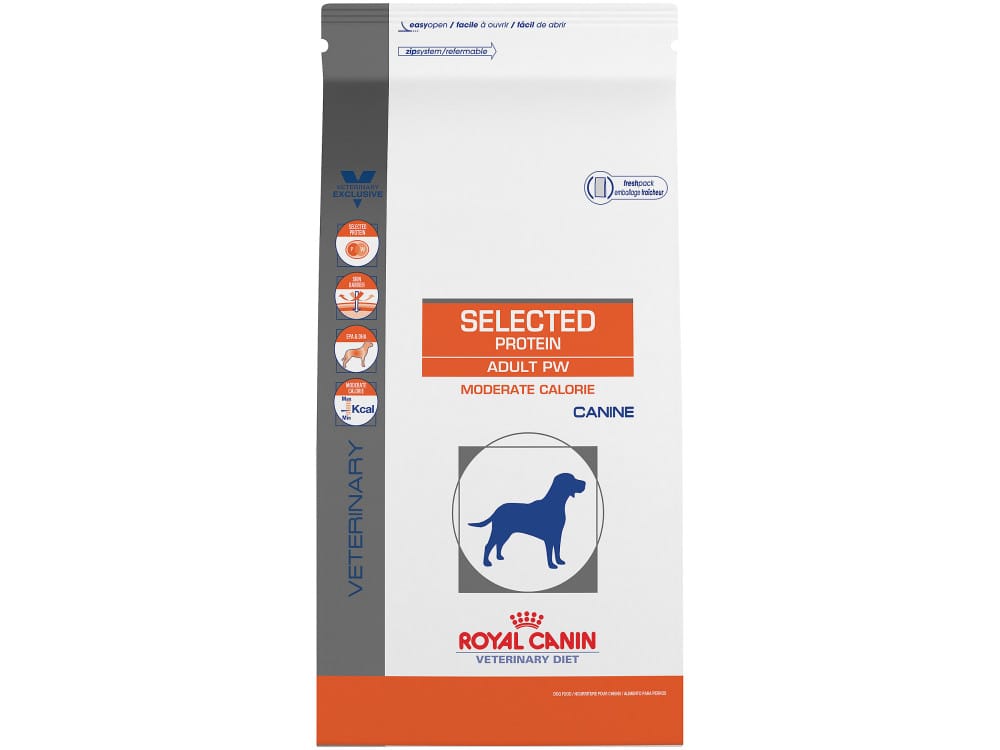
Another option for dogs is a diet with only a plant-based protein. As dogs are omnivores, they can lead healthy lives eating a vegetarian diet. Cats are obligate carnivores. They must eat animal protein to survive, and should never be restricted to a plant-based diet.
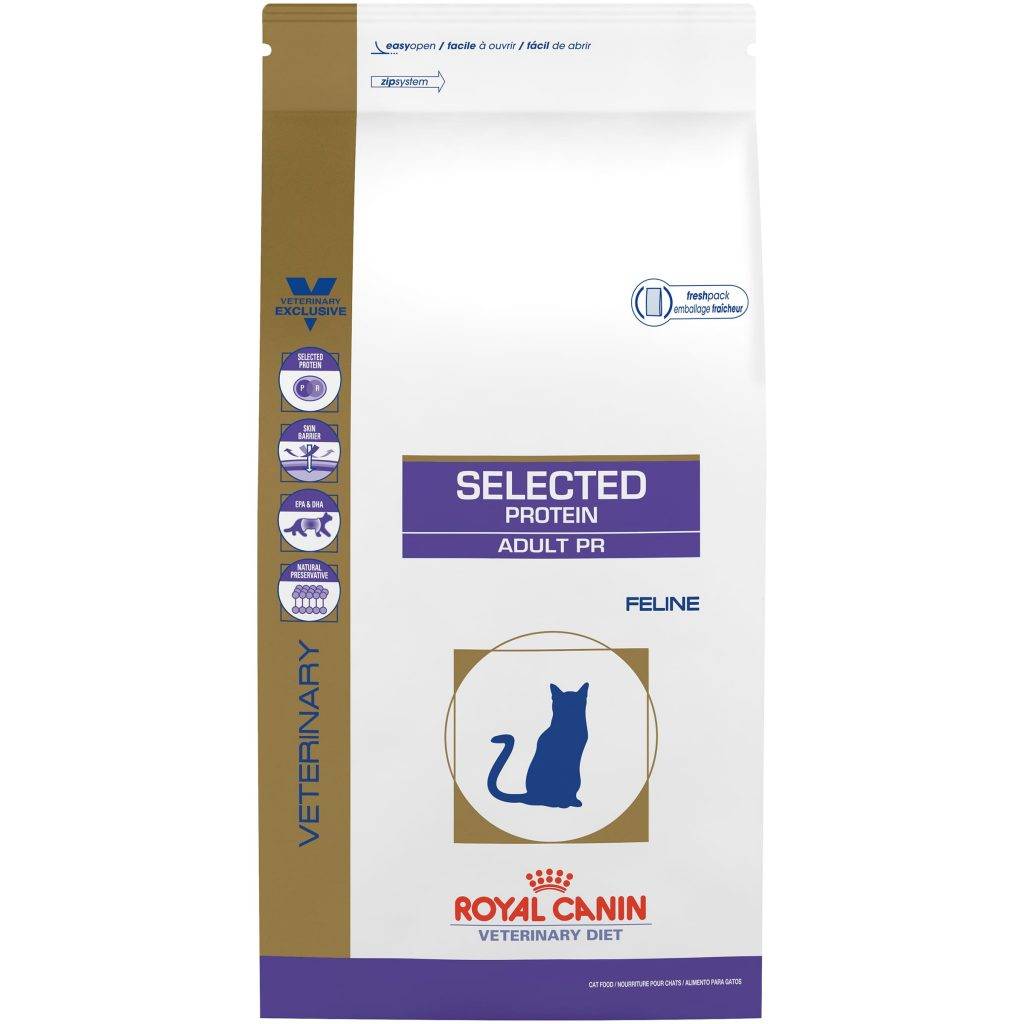
When feeding novel protein diets, pet owners must ensure their pets ingest no other animal proteins. Common potential sources of animal proteins are:
- Flavored treats
- Toys
- Human foods
- Medications (including oral heartworm, flea, and/or tick preventatives)
- Supplements (including gelatin from gelcaps)
- Toothpaste
Failure to eliminate all other animal protein sources from a pet’s diet will result in an inadequate clinical response to dietary intervention.
What are hydrolyzed protein diets?
Hydrolyzed protein diets contain a protein source that has been broken down into its amino acids and peptides. Put simply, the protein has been chopped into tiny pieces the immune system has a hard time identifying. If the immune system can’t identify the protein, it can’t wreak havoc and create inflammation. Advantages of hydrolyzed protein diets include:
- Complete and balanced formulas
- Good palatability
- Appropriate for long-term feeding
- Reasonable chance of efficacy even if the patients were exposed to several animal proteins historically
Disadvantages of hydrolyzed protein diets are higher cost and potential for continued clinical signs if the pet reacts to the hydrolyzed protein.
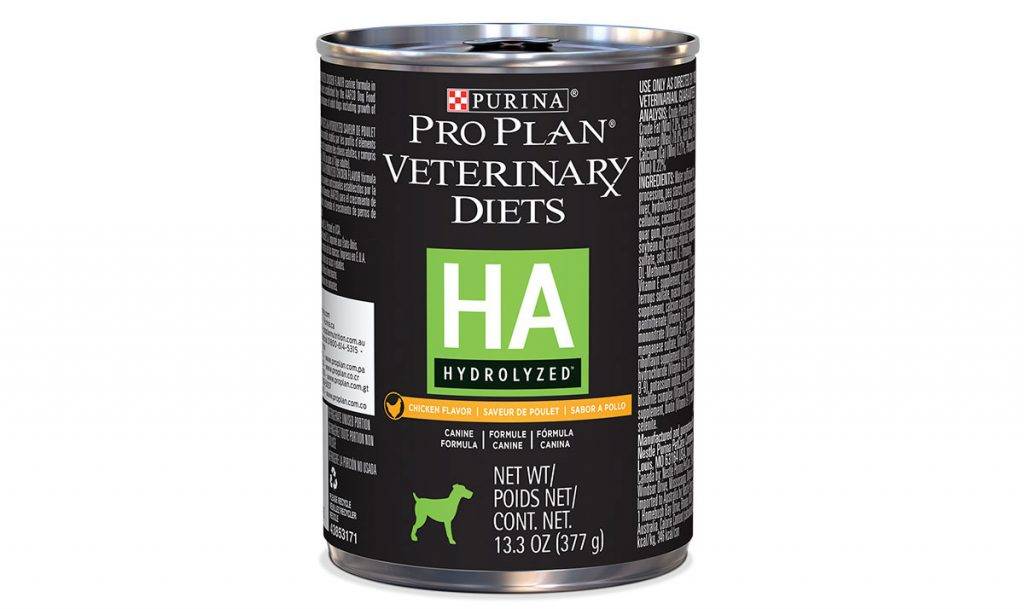
How do you support the gut microbiome?
Emerging research by board-certified veterinary nutrition specialists has demonstrated benefits of diets fortified with fiber-bound polyphenols. Fruits and vegetables contain an abundance of polyphenols. They have antioxidant properties, and the gut microbiome harvests them. Increased carbohydrate & fiber fermentation and reduced putrefaction (decay) have beneficial effects for dogs and cats because they lead to increased production of short chain fatty acids (SCFA), also referred to postbiotics. The major postbiotics are acetate, propionate, and butyrate. Acetate and propionate support microbial growth and provide an energy source for the body. Butyrate provides fuel for the cells of colon.
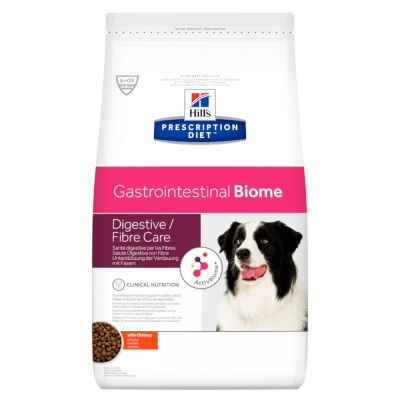
What about home-cooked food?
Home-cooked diets are great options for pets living with IBD as long as they contain all of the vitamins, minerals, and other essential nutrients pets need. Proper formulation is essential. Previous studies have demonstrated home-cooked diets not formulated by board-certified veterinary nutrition specialists frequently fail to meet the unique nutritional requirements of cats and dogs. As such, pet owners who wish to feed home-cooked diets should consult with a board-certified veterinary nutrition specialist to ensure their pet’s diet is appropriately balanced.
The take-away message about diet options for IBD…
Inflammatory bowel disease is a common gastrointestinal disorder of companion animals. There are multiple ways to nutritionally support affected patients. Some cats and dogs respond very well to dietary manipulation alone while others will only have a partial response. Some will not respond to diet alterations and require medications to control clinical signs.
To find a board-certified veterinary internal medicine specialist, please visit the American College of Veterinary Internal Medicine.
To find a board-certified veterinary nutrition specialist, please visit the American College of Veterinary Nutrition.
Wishing you wet-nosed kisses,
CriticalCareDVM
